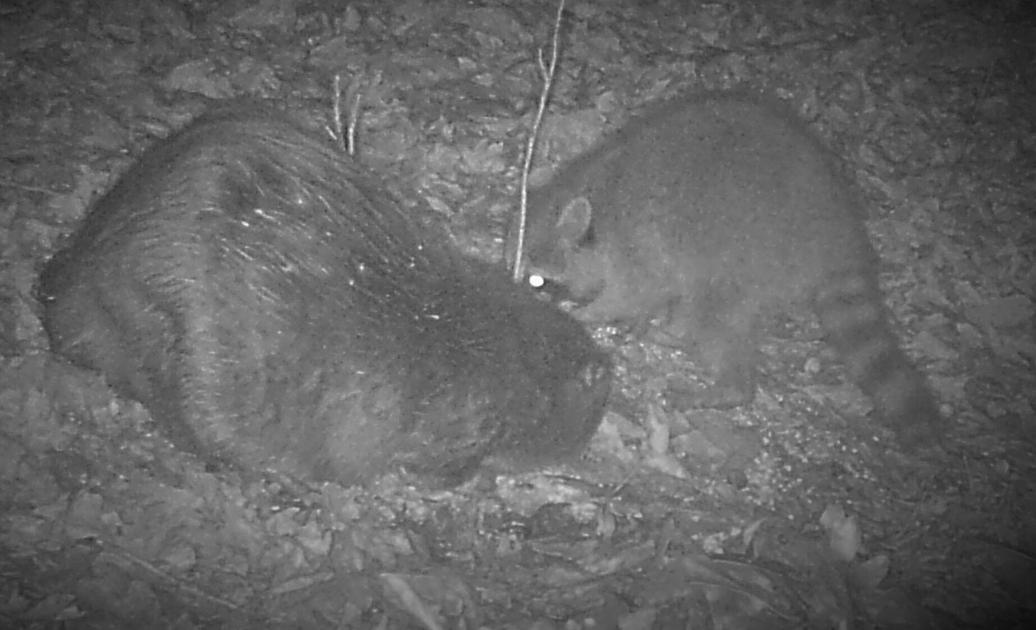
Q. I am not a hunter but am aware that deer hunting season has opened in most states. I thought it was illegal in Alabama, Georgia and South Carolina to put out corn as bait to lure deer or ducks, but I’ve heard it is now legal to do so for deer. Is that true? Also, is it environmentally acceptable to put out bait to attract wildlife if you are not a hunter?
A. Regulations about putting out bait to attract huntable wildlife are a moving target in many states. The rules can change from year to year and species to species; they can even vary from county to county. It is up to hunters to learn about such regulations. Hunting violations are serious offenses. A judge I know pointed out that, during hunting season, almost everyone a game officer confronts will have a gun. It’s a tough job. In my friend’s court, a hunting violation was sure to draw a fine, even if hunters didn’t realize they were breaking the law.
If you are not a hunter, attracting animals with bait is a completely different matter, although some rules are in play. Feeding wild dolphins, manatees or alligators is against the law everywhere in the U.S. Animals in national parks, wildlife refuges and some state parks are off-limits, as are any species on the federal endangered species list. Probably the most ubiquitous bait is that used for backyard birds. Sugar water in a hummingbird feeder is bait. Sunflower seeds, suet and mealworms are replenished year-round in backyards across the country. Even so, not everyone thinks bird feeders are a good idea. Some communities discourage feeding birds or other wildlife. So, is it acceptable to feed wildlife? That depends on the species, the location and who’s making the rules.
Some people think that feeding birds can lead to native birds’ dependence on an unnatural food supply, though scientific evidence supporting that assertion is questionable. Putting out corn in suburban areas can attract deer, and the supplemental food can lead to larger populations. More deer mean more nibbled yard plants and deer-car collisions. Feeding stations that attract an overabundance of a species can also result in unnatural levels of disease and parasite transmission. Keeping feeders clean and using fresh food is important.
Backyard bird feeders are smorgasbords for gray squirrels (and sometimes other rodents) that may increase in abnormal numbers. Foxes, which are becoming more common in suburban areas, raccoons and possums make their nightly rounds to see what’s left of the day’s offerings to the birds. Some people are okay with these nocturnal visitors, others not so much.
Putting out corn will nearly always attract some sort of wildlife, and you may get unexpected visitors. I recently saw a photo from a wildlife camera where a pile of corn near a stream had attracted raccoons. No surprise. The surprise came when another photo showed a beaver and a raccoon eating the corn at the same time. These two native species presumably cross paths in natural settings and are accustomed to ignoring each other. On another occasion, photos showed raccoons and wood ducks eating only a few feet apart.
One defense for feeding wild animals in a suburban setting is that once an area has been developed for agriculture, housing or industry, humans have already altered the natural habitat beyond repair. Concerns about using bait to attract wild animals because it will affect the natural environment ring hollow. Baiting wild animals allows us to enjoy the wildlife in the area. If you can set up a wildlife camera, you may observe surprising behaviors and relationships. Just remember that if you are a hunter or have a neighborhood covenant, you need to know the rules before you bait.
The Link LonkOctober 19, 2020 at 08:55AM
https://ift.tt/2HeV8H1
ECOVIEWS: is it legal to put out corn for game species? - Charleston Post Courier
https://ift.tt/3gguREe
Corn

No comments:
Post a Comment